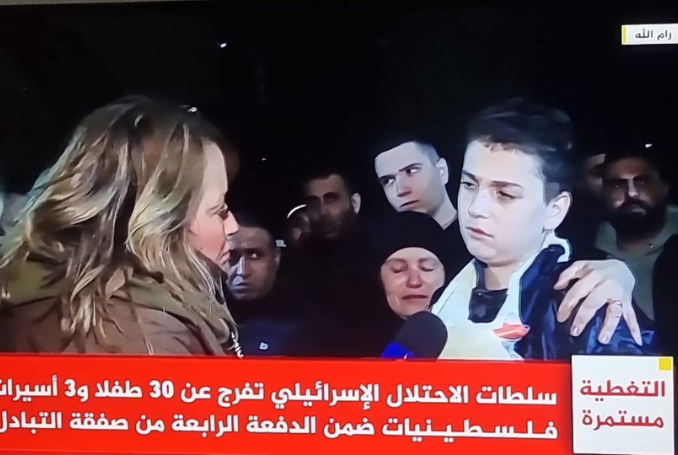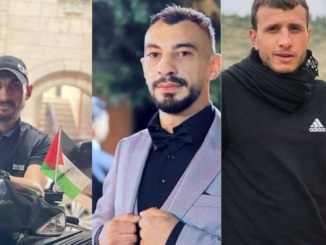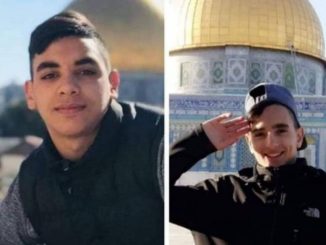
Soon after his release, Mohammed Nazzal was moved to the emergency room of the Ibn Sina Hospital in Jenin.
30 Palestinian child detainees were released on Tuesday morning, as part of the prisoner exchange deal between the Palestinian Resistance and the Israeli government.
Mohammed Nazzal, from the city of Qabatiya, was one of them. Soon after his release, he was moved to the emergency room of the Ibn Sina Hospital in the city of Jenin.
Mohammed was severely injured in both his hands due to the beating by Israeli soldiers in the Negev prison, one week ago. The hand fractures were deliberately neglected by the Israeli Prison Service, which led to complications to the child’s right hand.
According to the Palestinian doctors who examined him following his release, Mohammed now needs a platinum implant to facilitate the fracture healing.
Palestinian child prisoner Mohammed Nazzal: "They beat me up with metal bars."
FOLLOW OUR LIVE BLOG: https://t.co/DgXrBhM6Az pic.twitter.com/lbKGnHOJoN
— The Palestine Chronicle (@PalestineChron) November 28, 2023
‘They Broke My Hands’
“I was arrested three months ago and I was held under administrative detention,” Mohammed told Al-Jazeera.
The administrative detention allows Israel to incarcerate Palestinians based on ‘secret evidence’ that is not revealed, even to the defense attorney. The detention can be extended for a period of six months, with no charge nor trial.
“The prison became a graveyard following October 7,” Mohammed said. “Israeli guards often entered the cells and beat the prisoners.”
“One week ago, we were savagely beaten with metal bars. I put my hands on my head to protect it from injury, but the soldiers did not stop until they broke my hands,” Mohammed added.
The child detainee was left without treatment for a full week until he was released on Tuesday morning, following the truce agreement.
Before being released, the Palestinian child prisoners were moved to the Ofer prison, where Israeli soldiers continued to beat them up, according to Mohammed. Following October 7, the Israeli Prison Service also implemented policies of starvation and other forms of abuse against Palestinian prisoners.
“They gave us a small plate of rice every day,” Mohammed said, adding:
“It was extremely cold in prison and the soldiers took blankets and clothes away from us. They even prevented us from showering and they mocked us saying that we had a bad smell.”
(PC, AJA)








